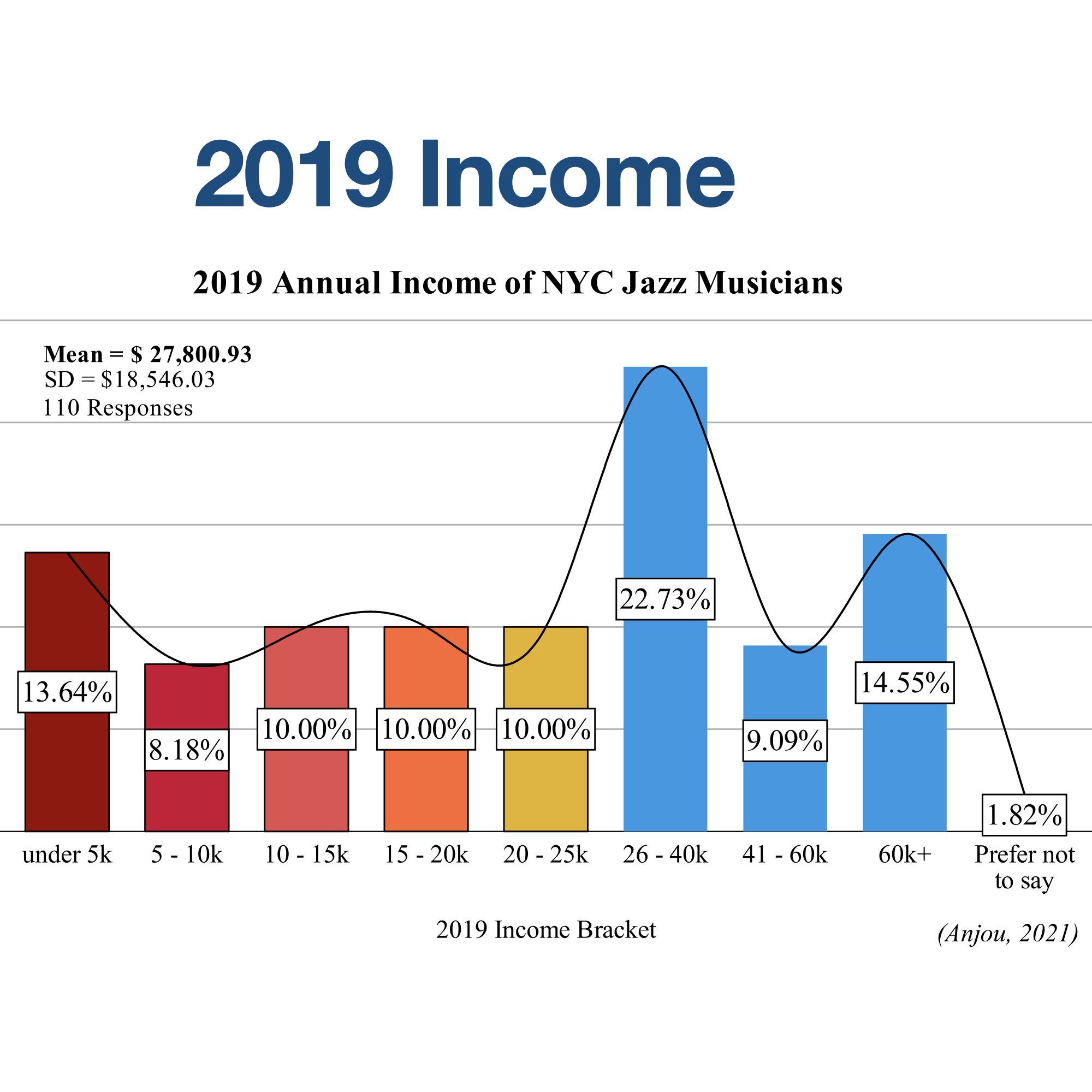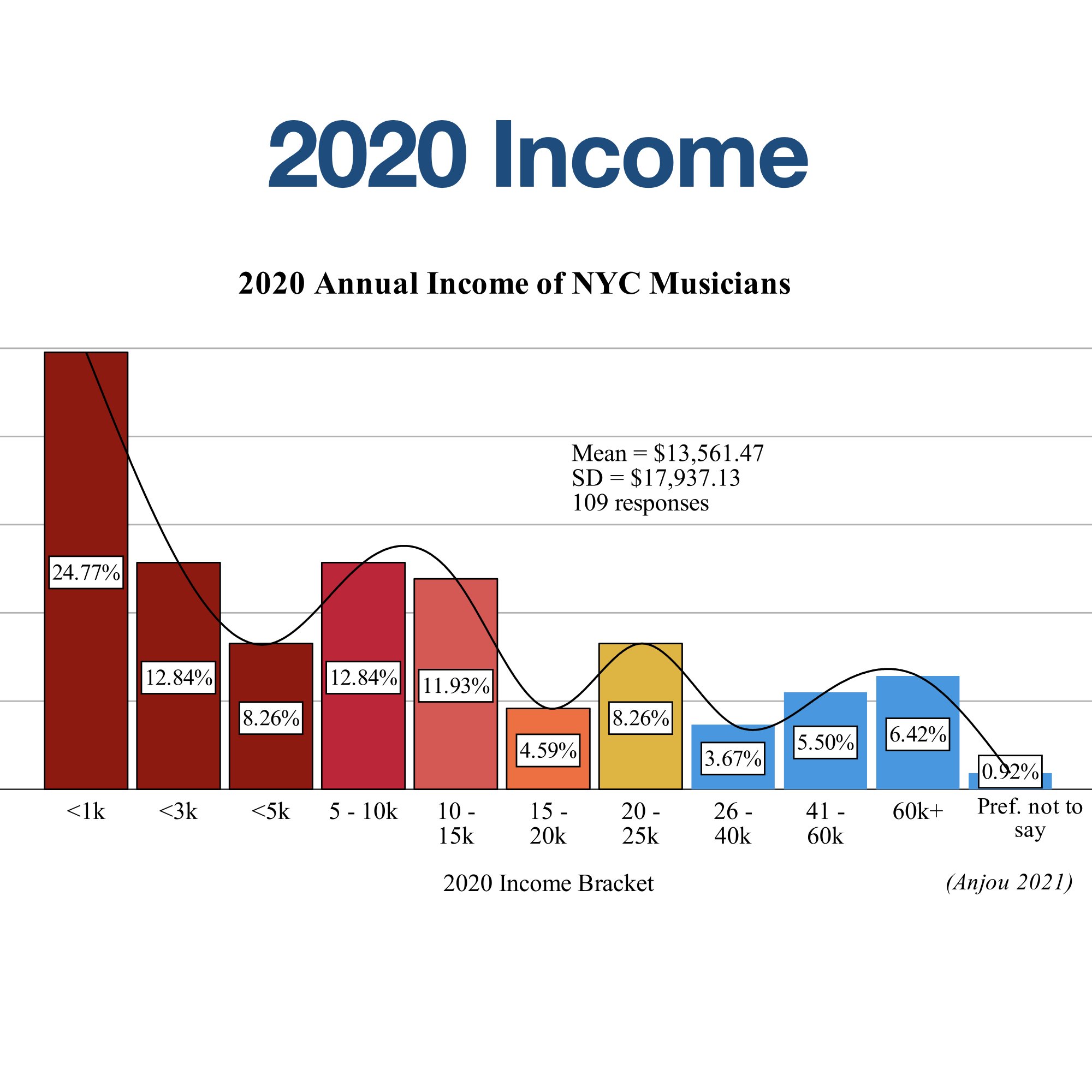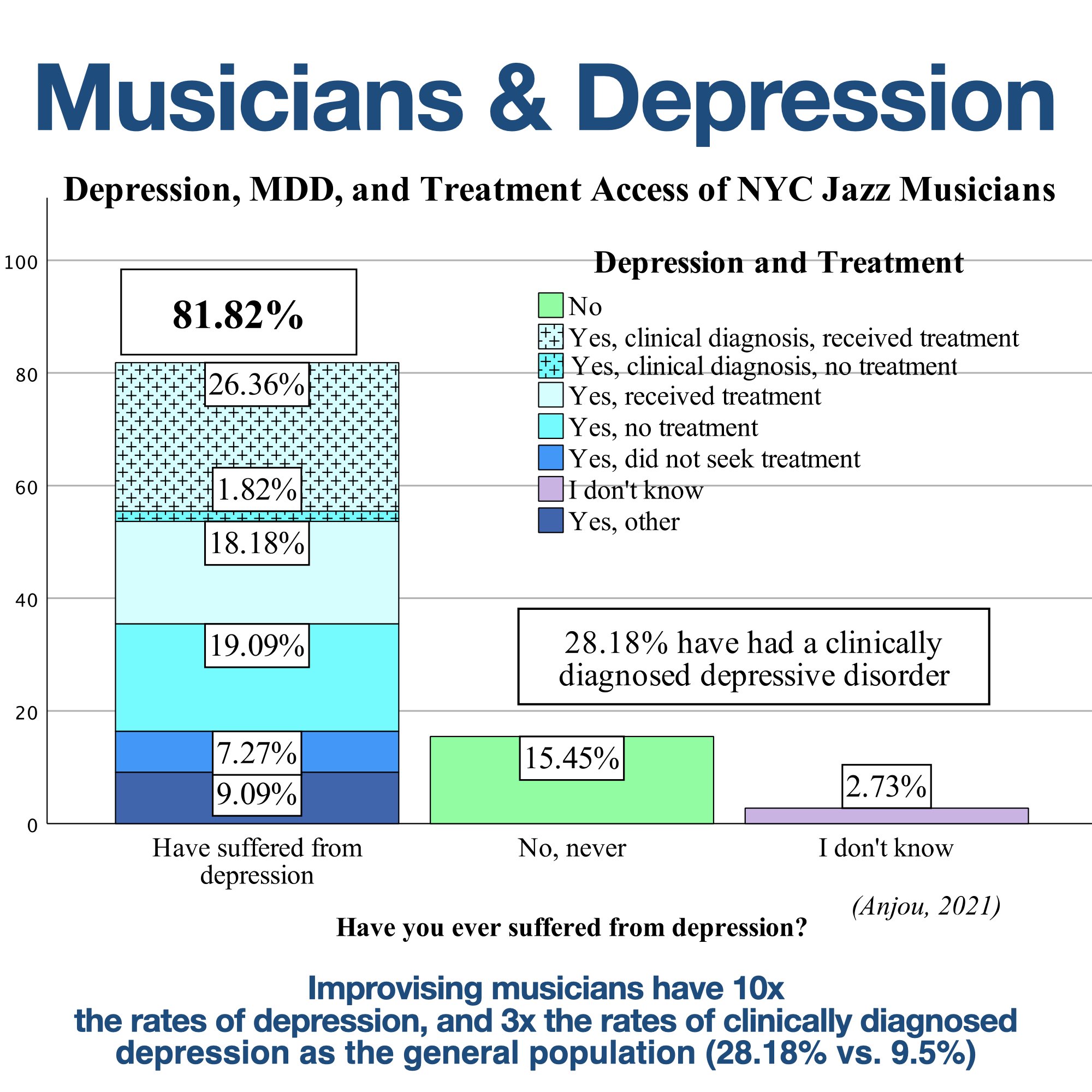Dissertation | Psychological consequences of careers in musical improvisation: A mixed methods study of the mental health and wellbeing of professional jazz and improvising musicians in New York City



Dissertation | Psychological consequences of careers in musical improvisation: A mixed methods study of the mental health and wellbeing of professional jazz and improvising musicians in New York City
A 135-page mixed-methods research dissertation in music psychology on the mental health and wellbeing of NYC jazz musicians accepted with merit at the University of Sheffield. Data analysis of a 44-question survey and six qualitative interviews of professional jazz musicians with 11-48 years of full-time career experience in New York City, conducted during 2021. The study was designed using ethical psychology research methods, approved by Mark Doffman, Stephanie Pitts, and Michael Bonshor. Available here only for purchase.
Abstract
This research aims to ascertain the general well-being and psychological health of jazz and improvising (non-classical) musicians living in NYC, as well as the impact of Covid-19 on their mental health. This work also considers the effects of extended isolation in quarantine upon group jazz and improvisation - e.g. music that requires in person social engagement. A mixed methods study conducted from June to September 2021 contained both an online survey taken by 110 participants self-identifying as professional jazz musicians based in New York City, and six qualitative interviews of professionals who lived and worked in NYC ranging between 11-43 years. Well-being and fulfillment of musicians were examined using the PERMA measurement index. Psychological factors examined included making a living from one’s passion, psychology of social experience required of career musicians, financial losses, canceled work, and how the pandemic affected creativity, as well as individual and social experiences of the phenomena of improvisation before and after quarantine.
Results yielded high levels of depression and anxiety in participants mediated by an unprecedented period of quarantine rest and a lack of intrinsic purpose or motivation to practice caused by the 2020 pandemic. Implications of this research can further the understanding of mental health of professional improvising musicians, and improving mental health and working conditions for gig economy music workers in a post-pandemic music industry in the US.
Keywords: jazz, improvisation, professional jazz musicians, professional musicians, non- classical musicians, wellbeing, mental health, pandemic, Covid-19, PERMA, purpose, social isolation, burnout, flow state, resilience, fulfillment, MPA